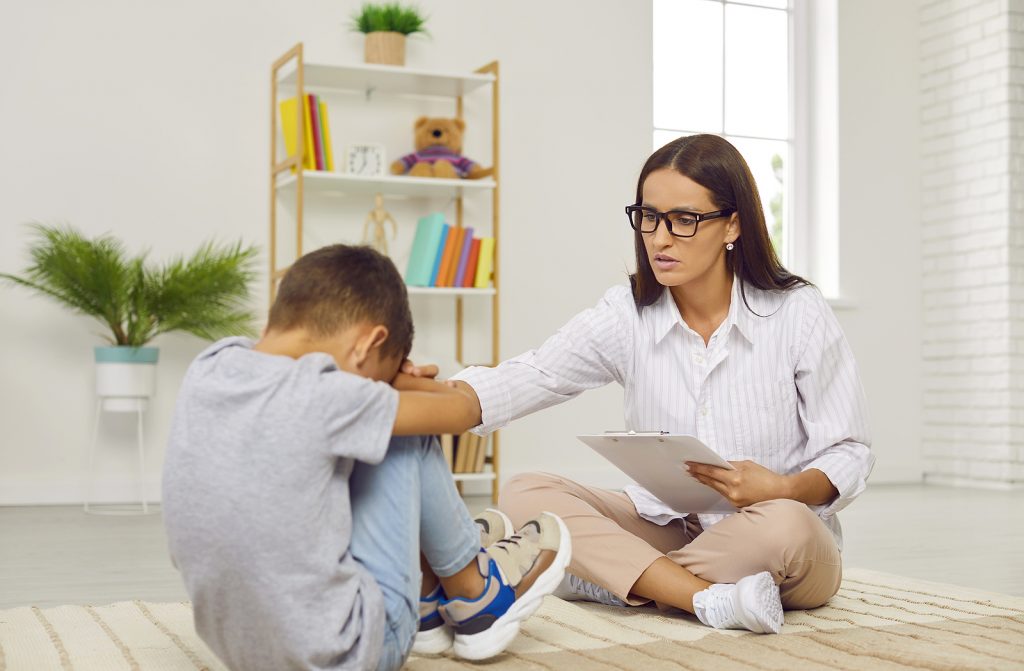It’s common for children to feel anxious or worried from time to time, especially when they’re encountering new situations. However, in some cases, an anxiety disorder may affect their thoughts and behavior daily, which can interfere with myriad aspects of their life. If your child is having a lot of anxiety, you may wonder how to help. Child anxiety counseling can be an effective solution for coping with fear, worry, and other emotional issues.

If you notice one or more of the following symptoms, your child may be suffering from an anxiety disorder.
Although separation anxiety is common in young children, older kids and teenagers usually don’t have as hard a time being away from their parents.
If you notice that your child’s anxiety isn’t going away or is getting worse, therapy can help them manage their feelings and learn how to cope when fear and worry arise. There are several types of treatment that therapists may employ in child anxiety counseling. Which ones work best will depend on your child’s age, personality, and what causes them to feel anxious or fearful.
Also known as CBT, cognitive behavioral therapy is effective in treating anxiety disorders in both children and adults. CBT teaches your child techniques and
skills to change their ways of thinking and reduce anxiety.
CBT helps children identify and replace negative thoughts and behavior patterns with positive ones. It also teaches kids how to recognize unrealistic thoughts that may fuel their anxiety. A therapist will teach your child these techniques and give them “homework” to learn how to apply them in real life. These coping skills can be used as lifelong tools for combating anxiety and encouraging healthy thinking patterns. A therapist can also advise parents and other family members on how to help their child manage symptoms.
ACT, or acceptance and commitment therapy, helps children use strategies like mindfulness and acceptance. ACT teaches them how to live in the moment and observe and experience thoughts and events without judgment. This can be an effective way to cope with unwanted thoughts and feelings.
DBT, or dialectical behavioral therapy, encourages children to examine how they deal with conflict and intense emotions and empowers them to take responsibili
ty for their actions.
In some cases, medication may be used in conjunction with child anxiety counseling. Depending on how severe your child’s anxiety is and how they respond to counseling with a therapist, medication can be a short- or long-term option.
Child anxiety counseling can provide tools and skills to help your child combat feelings of worry and care for their mental health for a lifetime. To learn more, contact a therapist directly to schedule an in-person or teletherapy appointment at Kayenta Therapy.